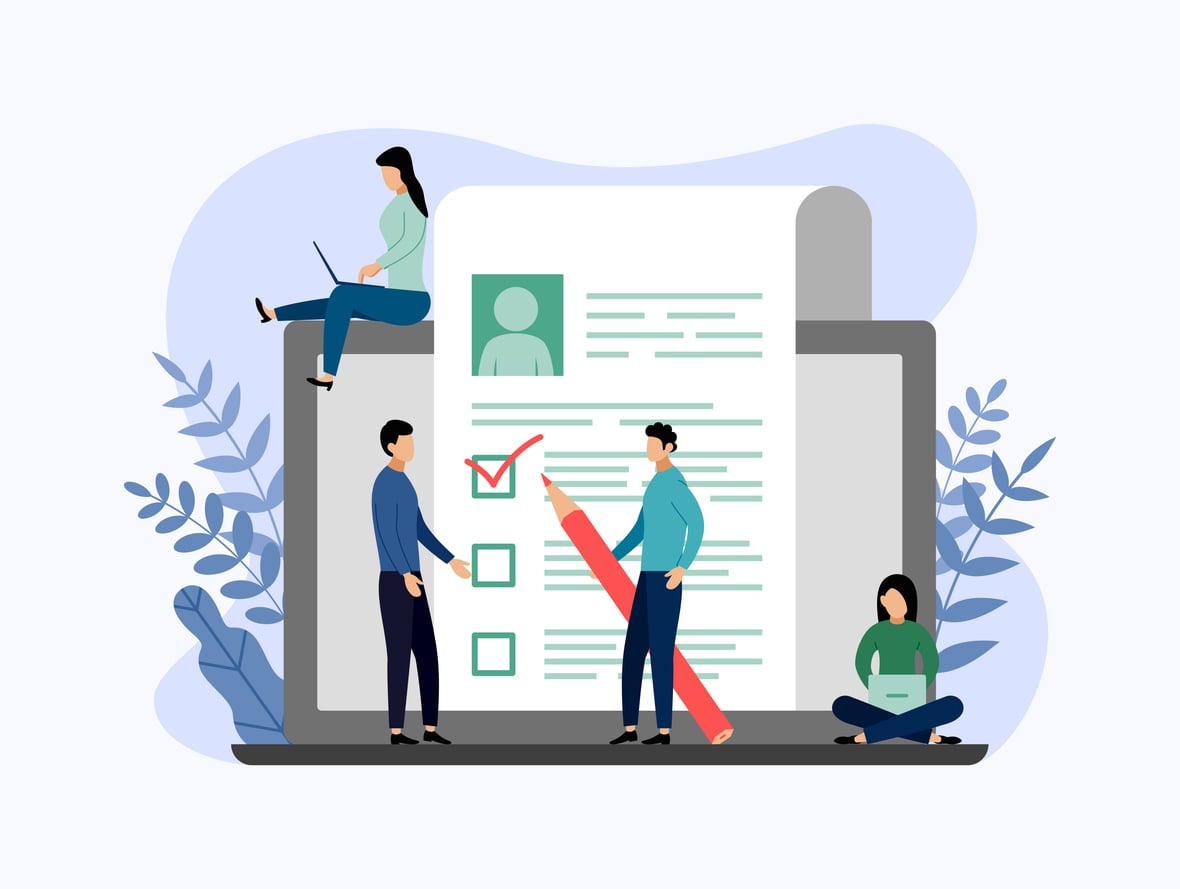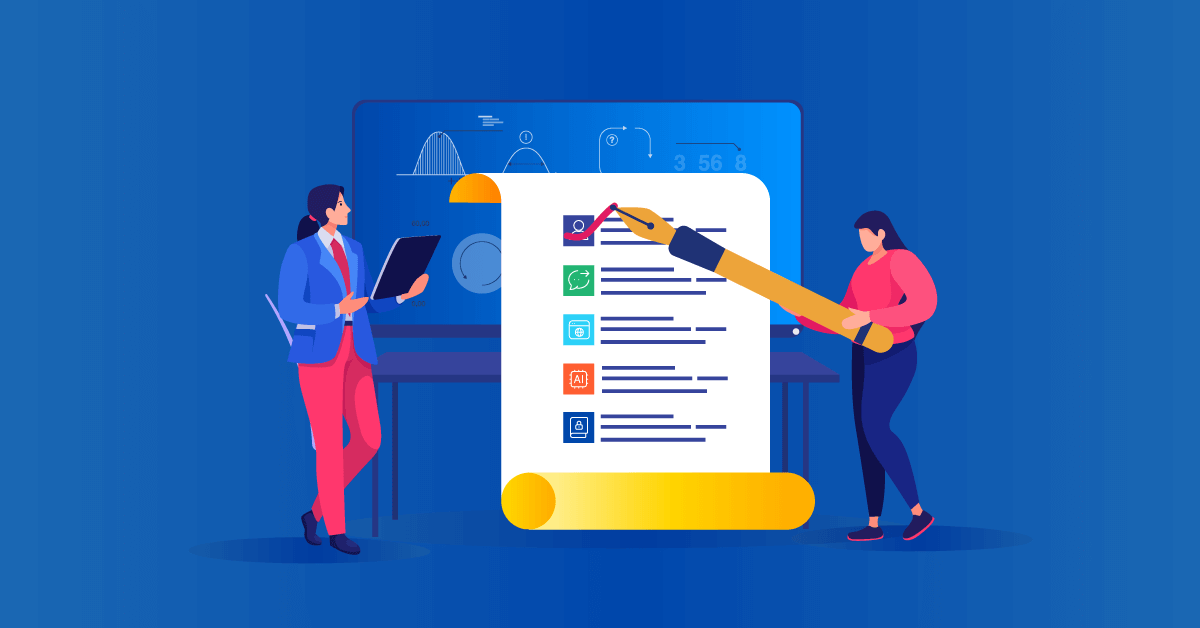Never assume that online learning is easier than in-class learning. You are all alone, and the only way to get well-connected to your eLearning environment is to communicate, communicate and communicate. And also, re-program your study habits.
In this article, we show you how to make these personal changes to reap greater rewards!
Instructional designers and eLearning developers, this information can be relayed to your students during the introduction phase of your eLearning program.
Are you a learner looking for eLearning success? Use these tips to help you perform like an ace in your next course.
For starters, eLearning is not to be underestimated as the easier way to learn something new. Rather, it is a more convenient way to learn. If you have taken at least one eLearning course, or you are thinking about registering for one, know that eLearning requires a unique temperament and self-management skills.
You need a sense of time-management, strong motivation as well as the love for learning. In short, you will need everything you need to complete a physical/live course and a bit more self-discipline!
Let’s look into these best practices in online learning:
Manage Your Expectations
Be warned, eLearning is not an easier way to study. It requires dedication and focused goals that are frequently revised. Be prepared for the following:
- Commitment to attend a live or an asynchronous eLearning session.
- Check your course by logging in frequently throughout the week.
- Become tech-savvy.
- Work with your online peers effectively, through responsive communication.
- It is very crucial to complete your eLearning assignments on time.
If you have checked all of the above, you are on your way to an enjoyable eLearning experience:
Dedicate a Study Space
Create a corner in your home, your office or an area that is dedicated for your eLearning. Make sure it is free of distractions. Your study environment should replicate a professional and a formal learning environment that enables you to focus and study well.
Let your family and friends know when you are studying. Turn off your phone and social media to avoid any interruptions during your study time.
Determine your Learning Goals
Write down your personal and professional goals after completing the eLearning course. These will provide you with a meaningful roadmap with specific milestones along the way.
Finally, consider starting with the most difficult tasks, as this will improve both the effectiveness of your study and your performance.
Create a Study Plan
Review the course syllabus and plan your course ahead. Highlight all the assignment and quiz dates and include them in your personal calendar.
A study calendar will remind you when something is coming up. This will help you prepare before time.
Last minute assignments hardly make up a quality deliverable. Procrastination will lead to stress and stress will prevent you from completing your tasks on time. If you have any vacation plans or seasonal holidays, you can plan and study ahead to avoid delays.
Create a Checklist of Tasks
Prioritizing and managing tasks in a timely manner is the crux of studying an eLearning course. Before the week begins, create a checklist (on your smartphone) of learning tasks like reading up the text resources, research papers and attempting the assignment.
Estimate the time required to complete each task. Stick to your time limits when working on your tasks. Review this checklist towards the end of the week. Stay on your schedule. Any lagging behind will exacerbate quickly.
Ask for Help Anytime
If you have any hesitations in contacting your course mentor or peers for help, you will be in hot waters pretty soon!
Working independently is constructive as long as things are smooth. The moment you realize the content is getting frustrating or you feel you are walking in circles, you need to email or call out for help.
Isolation and alienation are the worst drawbacks of eLearning. Be ready to ask plenty of questions. The answers will reassure you and guide you towards the right direction. Another good way is to read your peers’ posts and instructor’s responses to similar questions.
Study in your Free Time
Instead of learning things the hard way or at the least desirable time, learn smartly!
Review your reading material and assignments in your free time to keep on top of things. At the end of your reading sessions, simply scribble down the highlights of the week.
This explicit memory jotting exercise will help you retain information for a longer duration. It will also create a favorable background to build the upcoming information on.
Remember to take breaks. Your performance will improve if you allocate study times after regular breaks.
Actively Participate in Online Discussions
Connecting with your virtual classmates on social media or your online course’s forum will tremendously enhance your eLearning experience. This is especially true if you are an introvert.
Participate actively in online discussions and group activities based on the topic of the week and projects. Provide guidance to others based on your experience. This will earn you respect among your peers. Netiquette and writing tone have to be practiced well in online discussions to avoid any negative experiences.
Staying motivated throughout your eLearning experience is another trick to complete your course within the suggested time frame. Reward yourself for completing challenging tasks. Take regular breaks. Use inspirational quotes in your study area to keep your dedication strong.
Above all, smile, you’re doing a great job!
This list is complete and it’s the only guideline you will ever need when attempting to study in an online learning environment. As an adult learner, you are naturally wired to study online! Simply get in tune with your natural study instincts and connect them with the eLearning environment’s requirements!



